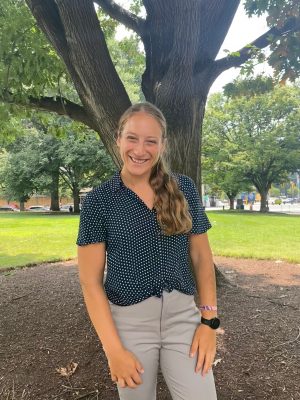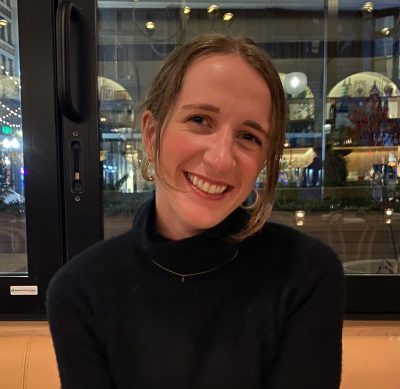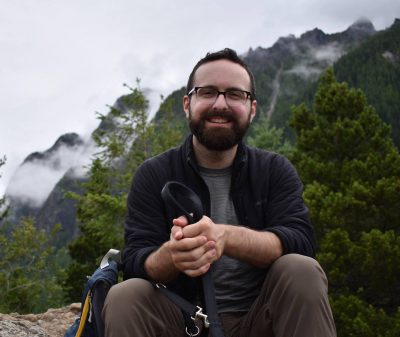Graduate Students

Erika Osherow
Erika is a first-year doctoral student in the clinical psychology program. Her passion for the mind-body connection extends to her current research interests in the physiological markers of well-being and stress responses. She is also excited to investigate the predictive factors that contribute to optimizing self-regulation and decision-making within interdisciplinary approaches to health. Erika will be joining Dr. Park’s PATH study — a clinical trial examining the mechanisms through which yoga reduces back pain — and another study examining the impact of emotional well-being and health outcomes with yoga. Prior to starting at UConn, Erika earned her M.Ed. in Exercise Physiology and M.A. in Sport and Performance Psychology. She has held a graduate research assistantship, studying the neurocognitive effects of concussions and traumatic brain injuries at the University of Denver, and an internship at the Center of Performance Excellence at the United States Military Academy at West Point.
Sarah Ahmadi
Sarah is a first-year doctoral student in the clinical psychology program. She is interested in the ways in which stress increases risk for adverse mental and physical health outcomes, as well as integrative treatments to target these pathways. She is also interested in research focused on promoting health and well-being. Sarah is a research assistant on Dr. Park’s NIH-funded project focused on yoga and emotional well-being. Prior to graduate school, Sarah worked as a research coordinator at the Aging, Metabolism, and Emotion Center at the University of California, San Francisco. She holds a B.S. in Biopsychology from the University of California, Santa Barbara.


Camille Garnsey
Mariel Emrich
Mariel is a third-year doctoral student in the clinical psychology program. Her research interests include understanding how individuals can optimize their coping responses to diverse stressors and related psychological sequelae, particularly in the context of serious illness, chronic pain, and trauma. She would like to continue to explore the bidirectional mind-body relationship and has a specific interest in non-pharmacologic pain management interventions. Mariel is a research assistant for two of Dr. Park’s projects: one is an NIH-funded network grant on emotional wellbeing and mind-body interventions and the other is a Templeton Foundation-funded grant focusing on meaning making and religion in bereaved individuals and cancer survivors. Prior to graduate school, Mariel worked as a research coordinator at Weill Cornell Medicine and assisted with a number of clinical research studies investigating various treatment modalities for PTSD and related co-morbidities, including therapeutic, pharmacologic, and virtual reality-based interventions.


Adam David
Zach Magin
Zach is a fourth-year doctoral student in the clinical psychology program. Zach’s research focuses on the mechanisms through which psychosocial factors affect cardiovascular disease risk and progression. He is currently collecting data for his dissertation study to examine the roles of perceived control, spirituality, and group identification in coping and related blood pressure reactivity to academic stress in college students. Zach has worked as a research assistant for two of Dr. Park’s NIH-funded studies: 1) A clinical trial examining the mechanisms through which a mind-body intervention reduces back pain and 2) A study examining resilience factors in cancer survivors. Zach currently works as a research assistant on Dr. Park’s study on divine forgiveness. Prior to his graduate training, Zach assisted with several studies at the Yale Stress Center that examined the roles of physiological and neurological processes in stress-related substance use and relapse risk.


Katherine Gnall
Katherine is a fifth-year doctoral student in the clinical psychology program. Broadly, her research interests include mind-body and lifestyle-based approaches to mitigate the adverse mental and physical effects of stress. She is also currently interested in examining how individual factors such as self-compassion, mindfulness, and emotion regulation abilities relate to engagement in a variety of health behaviors. Katherine is a research assistant for Dr. Park’s NIH-funded study examining resilience factors in cancer survivors. Prior to beginning her graduate studies at UConn, she worked as a research assistant at the National Center for PTSD.
Sinead M. Sinnott
Sinead is a pre-doctoral intern at McLean Hospital/Harvard Medical School. Sinead’s primary interests are stress, coping, and resilience. She is interested in using integrative treatments, such as mindfulness and meditation, to treat stress-related disorders such as posttraumatic stress disorder. She is exploring how mindfulness and meditation affect stress-reactivity at the physiological level. She has been a part of studies examining how cortisol regulation, heart rate variability, blood pressure, and skin conductance responses are affected after a potentially traumatic experience, and is currently working on her master’s thesis project to determine whether mindfulness may help to regulate stress physiology after sexual assault. She was a research assistant for Dr. Park’s NIH-funded grant examining cancer resilience, including stress biomarkers of resilience in this population.
